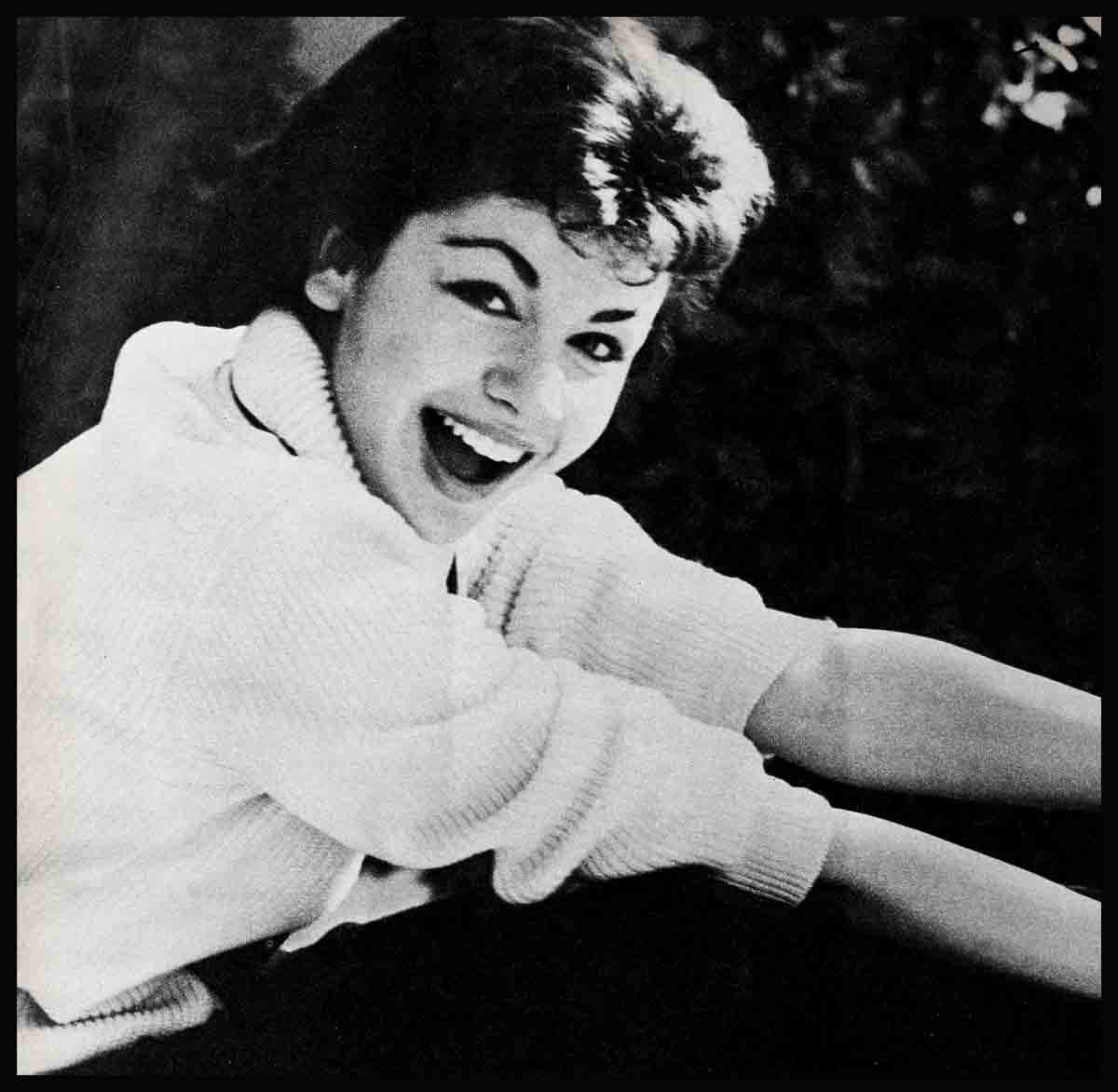
Who Is Annette Funicello?
What is an Annette? What is any girl sixteen years old?
She’s the voice on one end of a telephone conversation, giggling, whispering, talking with her very best beau. She’s the eyes that peer intently into the dressing-table mirror, cautiously inspecting her face, wishing that she’d grow up to be an Ava Gardner. She’s dreams, ambitions, blushes.
She’s the daughter of Joseph Edward Funicello, who owns his own garage and is proud but sometimes puzzled by his daughter. She has two brothers, Joe, 13. and Michael, 7, who don’t understand how a girl can take so long to get dressed. She looks a little like her mother, Virginia, who does understand—most of the time.
She likes: hot fudge sundaes, foot- ball games, her T-bird (which she got for her birthday and which she can drive only within a few blocks of home), dancing, the way Fabian sings “Turn Me Loose,” beach parties, eye makeup (which her mother lets her wear only on very special occasions), the new house the Funicellos are getting so she and her brothers can have more room, the old bedroom she’s leaving decorated in pink and usually strewn with her clothes, books and souvenirs, the girls she met as a Mouseketeer, slumber parties.
Like the slumber party she had just the other week.
Ten girls, some of them from the neighborhood, some from the Mouseketeers, were spending the night with Annette. They tried on each other’s lipsticks and then they gathered around the record player in the Funicellos’ modest living room. So used to girl-talk that he didn’t even hear it, Mr. Funicello watched television in the adjoining sun room.
Her brother Joey watched fascinated as Annette, in pink and white candy-striped pajamas, pushed her hair to one side and then swooped a big wave down over one eye.
“Gee, Annette,” he said, “you sure look funny.”
In the mirror, Annette spotted Darlene Gillespie’s blue shortie pajamas and called out, “Darlene, what do you think?”
Looking up from a stack of records, Darlene thought a moment. “Uh-uh,” she said.
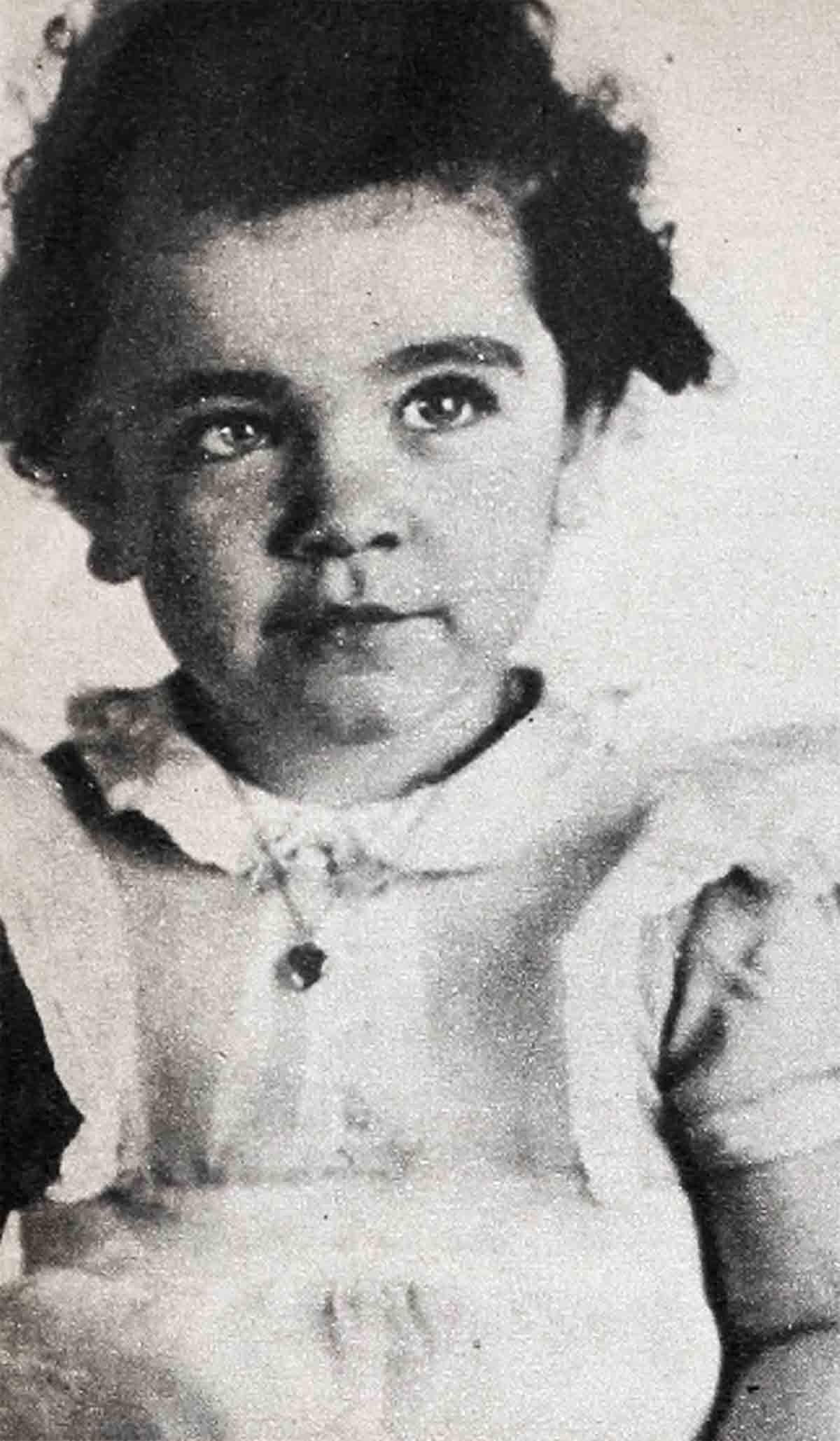
Annette brushed her hair back into the curly bob she normally wears. “Here comes Mom,” she told Joey. “Guess it’s time for you to get off to bed.”
“Can’t I wait till . . .”
“No.” Mrs. Funicello, hearing his plea, put her hands on Joey’s shoulders and pushed him gently toward the door. “And take Mike upstairs with you,” she called out after him. “There are more sandwiches in the refrigerator,” she told Annette, “if you have some unexpected guests. I’ll be next door in the sun room with Daddy, watching TV.”
“Thanks, Mom,” Annette said gratefully. Then, as she reached for another piece of fudge, her mother turned. “Better not have any more of that,” she advised. “You know what it does to your skin.”
“Annette,” called out Darlene, “if you’re really not going to eat any more of that fudge, how about passing it to me?”
Just then, Mary, another ex-Mouseketeer, emerged from the kitchen, her terry-cloth scuffs slap-slapping on the carpet as she walked. In one hand, she carried a glass of milk, and in the other, a long-playing record album.
“Gollee,” she said, “will somebody please tell me what this simply fantastic Frankie Avalon record was doing in the kitchen? I found it on the sink!”
A minute later, the bell at the front door rang.
“Boys!” Mary announced.
Jumping up, Annette ran to the front door to let them in. “I bet they think they’re surprising us,” she laughed to herself. The other girls quickly forgot about Frankie Avalon and Fabian. They paired off and started to dance. Only Annette still thought of a boy who wasn’t there.
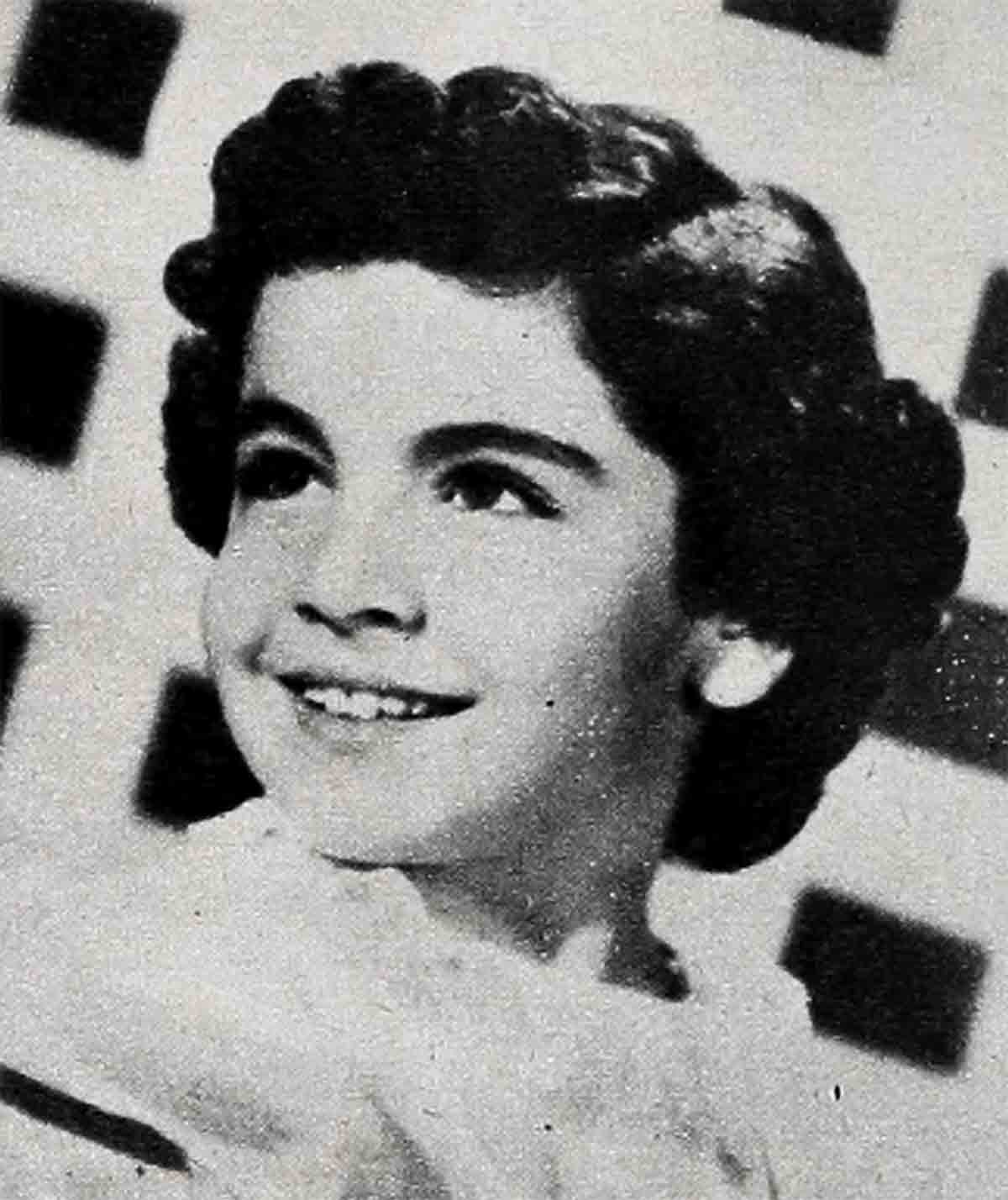
What is an Annette? She’s thrilled (“simply thrilled”) by: the color violet, John Saxon (whom she’s never met), long-distance phone-calls, practically anything to eat, a brown rabbit with an orange stomach and ears named Paul, and an eighteen-year-old vocalist, also named Paul.
“Annette,” Paul’s agent had said, “I’d like to present Paul Anka. Paul . . . Annette.”
Annette extended a trembling hand and hoped the nice-looking boy didn’t see her gulp. Here he was, the very same Paul Anka whose records she adored. Who would ever have expected a business agent to play cupid! But that’s how it had come about.
Paul’s agent had called on her about a business matter. She’d told him she liked Paul’s records, and the agent suggested an introduction. And now here they were . . . she and Paul . . . and, of course, the business agent, too.
Southern California is cool at night, and. a breeze from the canyons of Hollywood Hills whipped her skirt as she walked across the yard to Paul’s car. Courteously, he opened the door. Analytically, she considered him.
“I believe he’s a little bit shy,” she concluded. “He’s hardly said a word so far.”
Luckily the agent was expansive.
“Well, kids,” he said, “I thought maybe we’d go over to some place on La Cienega for dinner. Unless there’s somewhere else you’d rather go?”
She had no preference. With most of the boys she knew, she ate dinner at hamburger stands.
“That sounds good,” said Paul, expertly cutting the car in and out of traffic. “Just anywhere will be fine with me.”

And so the evening had begun, a chaperoned dinner. When they were having dessert, the agent stood up. “Excuse me,” he said, “I have to make a telephone call.” Then Paul had an idea and he leaned across the table.
“Annette,” he said coaxingly, “let’s go somewhere together, just us. Could you go to the Palladium for dancing? I’d love to take you.”
“I’d love to go,” she said. “I really would.”
The agent wasn’t slow to take a hint. They dropped him at his apartment, so they could go on to the Palladium alone.
Colored lights flecked the mammoth dance floor on which dancers moved to the music of Harry James, and moving with them were herself and Paul.
“Having fun?” Paul wanted to know.
“Mmm,” she nodded. It had been a wonderful evening.
Dancing at the Palladium was the beginning of something pretty important to Annette, the way she feels about Paul Anka. There’ve been crushes before . . . the big thing with Lonnie, the really mad crush when she first joined the Mouseketeers . . . a much-publicized crush on Guy Williams that was simply a case of hero-worship—he didn’t even know about it . . . a few brief “passions” for Studio City and North Hollywood High School boys . . . but, for the past few weeks, the crush on Paul Anka has been the biggest thing of all.
After the first date at the Palladium, Paul visited her home several times, had dinner with the family. And since he’d been in New York and England, he’d written and telephoned.
Flopped across the bed, reading and rereading his letters, she remembers dancing at the Palladium, circling lights, the music of Harry James . . . Paul.

He’d given her a necklace (“with a real cultured pearl”) and a zoo of stuffed animals. Her favorite was the brown and orange rabbit named Paul, and although she knows it won’t go very well with her bedroom in the new house, that’s where it will stay.
“My new room,” she says, “is going to be done in eight shades . . . all violet. I’m just mad about violet. But I’m going to keep my rabbit there anyway.”
When friends tease her about Paul, she’s not embarrassed. She freely admits he’s the boy she likes best of all. . . .
Annette dislikes: the color maroon (“It’s such a dull color,” she says. “We used to have a car that color and it never ran right”); an overdose of classical music (“’Though a little is all right”); shoes that are too tight; washing dishes; people who are loud and impolite; people who hurt others . . .
When she thinks of impolite people, she remembers the boy who almost made her cry at school.
She had just made her television debut as a Mouseketeer, and was still attending North Hollywood Junior High School. At twelve, she was still timid, but not as painfully so as when her parents, to help her get over her shyness, had first enrolled her in dancing classes. Still, it took all the self-confidence she could muster to see her through those first weeks in the Mickey Mouse Club.
The morning after she appeared on television for the first time, she wanted to skip and run along the street—she was so excited. It had been fun, she admitted, seeing herself on the monitor. The other Mouseketeers were so nice, and the director was so pleasant. He’d even confided to her that he, too, was timid, and this had helped her through some bad moments.
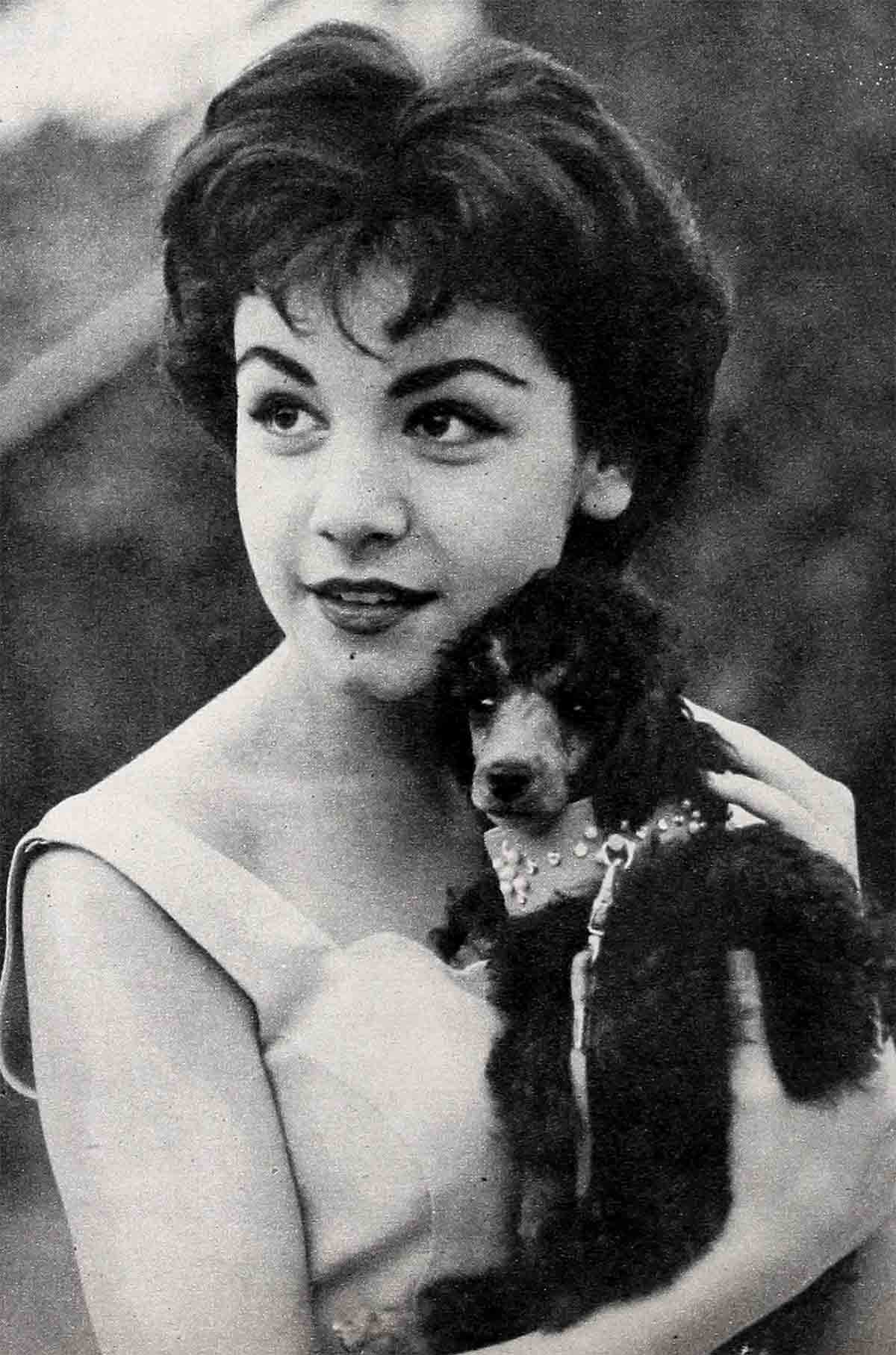
“I wonder if the kids saw me,” she thought.
She noticed that two boys were already at the flagpole, ready to hoist the flag. The bugler, whose quavery notes always made some of the kids snicker, was carefully removing the shining bugle from its case. Almost time for the home-room bell, she thought, walking a little faster.
Groups of kids were still lingering in the playground, but she hardly noticed them. She was too intent upon reaching her room before the bell, on hearing what the kids had to say.
Suddenly, though, she became aware that some of them were pointing toward her. They definitely were.
What could be the matter? Surely her shoes matched. Had she put her skirt on backward or something, she wondered. No, everything was all right.
She was nearly abreast a knot of boys when she caught the word “Mouseketeer.” A red-headed boy laughed raucously.
“Annette,” he bawled. “Annette.”
And then he put his hands to his head and made mouse ears. It was contagious. Other kids imitated him. Someone started singing the Mouseketeer song, and others, whooping with merriment, pointed toward her.
Everywhere there were mouse ears and pointing fingers. The red-headed boy ran along beside her yelling, “We are the merry Mouseketeers.” She fought back her tears as she began running for the sanctuary of the school building.
“They’re mean,” she sniffled, fumbling in her shoulderstrap bag for a tissue. “Maybe,” she tried to tell herself, “maybe they don’t really mean to hurt me . . .”
But she could never really convince herself of that, and from then on, till she started going to school at the Disney studio, she avoided crossing the school yard when there were lots of kids there. She was frightened when anyone began to look her way and whisper.
She’s embarrassed by: People who stare.
Usually when people stare at Annette, it’s because she’s pretty and she’s an actress. But there are other reasons. There was the night of the Mouseketeer party, for instance. Lonnie was staring.
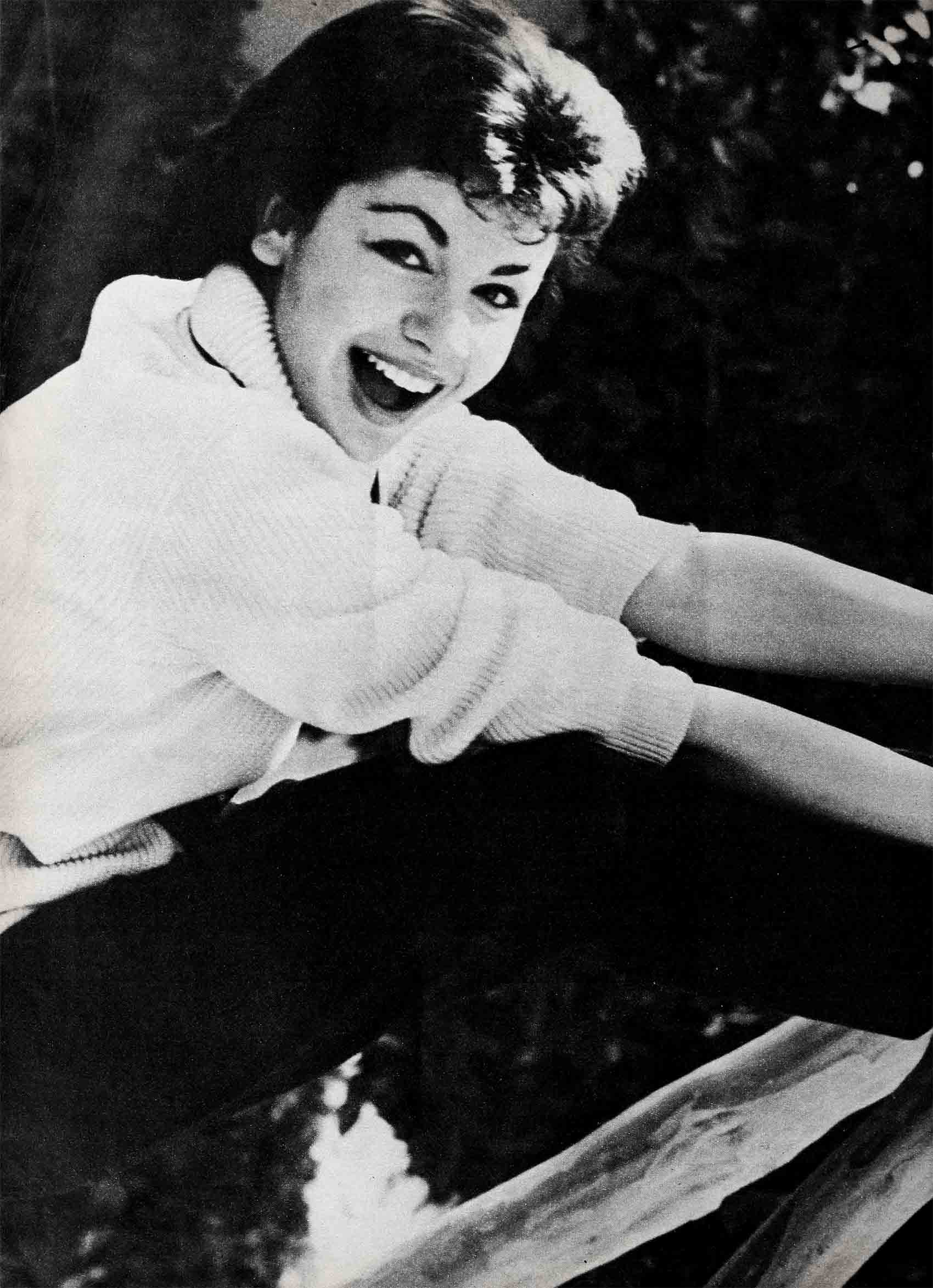
Just a few minutes earlier, Annette had been radiantly happy. Dancing with Lonnie was a dream come true. Annette, at twelve, was in love. Luckily she was in love with Lonnie, a fellow Mouseketeer, so she got to see him practically every day. And tonight they were at a party together.
Red, blue and orange balloons bobbed on strings across the ceiling. Girls, in dresses as bright as the balloons, bobbed about the dance floor, their escorts looking very serious in dark suits and ties, as they tried to follow the music.
On the refreshment table, in a cut-glass bowl, slices of lemon and dots of cloves made islands in the pink punch. What matter if there was no orchestra? A record player blared “Dance With Me, Henry,” and the Mouseketeers and their friends danced untiringly.
“Gee, Annette,” Lonnie whispered,” you dance better than any girl I know.”
“Do you really think so?” she asked, glowing.
“For a long time,” he pursued, “I’ve wanted to tell you how much I like you, but I’ve never had a chance before.”
“I like you, too, Lonnie,” she said softly.
The music grew faster. Annette, her lithe figure swaying, kept pace . . . cheeks pink, eyes sparkling. She’d never had more fun.
Then . . . suddenly . . . rip.
Her dress had split from sleeve to waist. Her slip was showing in the worst possible place. Frantically she glimpsed an expanse of pink nylon and lace exposed through the gaping bodice.
The pink in Annette’s cheeks turned to crimson. Wildly muttering excuses, she began to edge off the dance floor.
“Annette,” Lonnie called after her, completely baffled, “what in the world is wrong? Where are you going?”
Annette backed away, shaking her head.
“I can’t dance anymore,” she said firmly. “I’ll just stand here.”
Scarlet-faced, she prayed he wouldn’t guess what had happened.
Standing by the wall, she pressed her elbows against her side to hold her dress together.
“It’s kind of cool, isn’t it,” she said finally.
“Cool!” Lonnie exclaimed. “I’ve never been so warm . . .”
“Maybe,” she suggested, “maybe you could get my coat . . .”
What is Annette? A girl sixteen . . . a girl with a crush . . . a girl whose parents insist upon being introduced to her friends . . . a girl who’s allowed to date only on Friday and Saturday nights.
She hates doing dishes . . . she sometimes forgets to pick up her clothes . . . she’s wild about chocolate but knows what it does to her complexion . . . she answers the phone the minute it rings (it might be Paul) . . . and on Sundays she’s usually in church.
She doesn’t mind lessons, but doesn’t especially like them either. She’s not a good swimmer but adores the beach. (“I can dive, though,” she says.) She goes swooney over records (Fabian, Avalon—and especially Anka).
She’s a bundle of dreams, blushes, and enthusiasms. Could she be defined in a word? Oh, easily. She’s an Annette!
THE END
SEE ANNETTE IN “THE SHAGGY DOG” AND HEAR HER RECORDS (FILM AND DISCS ARE DISNEY).
It is a quote. PHOTOPLAY MAGAZINE SEPTEMBER 1959


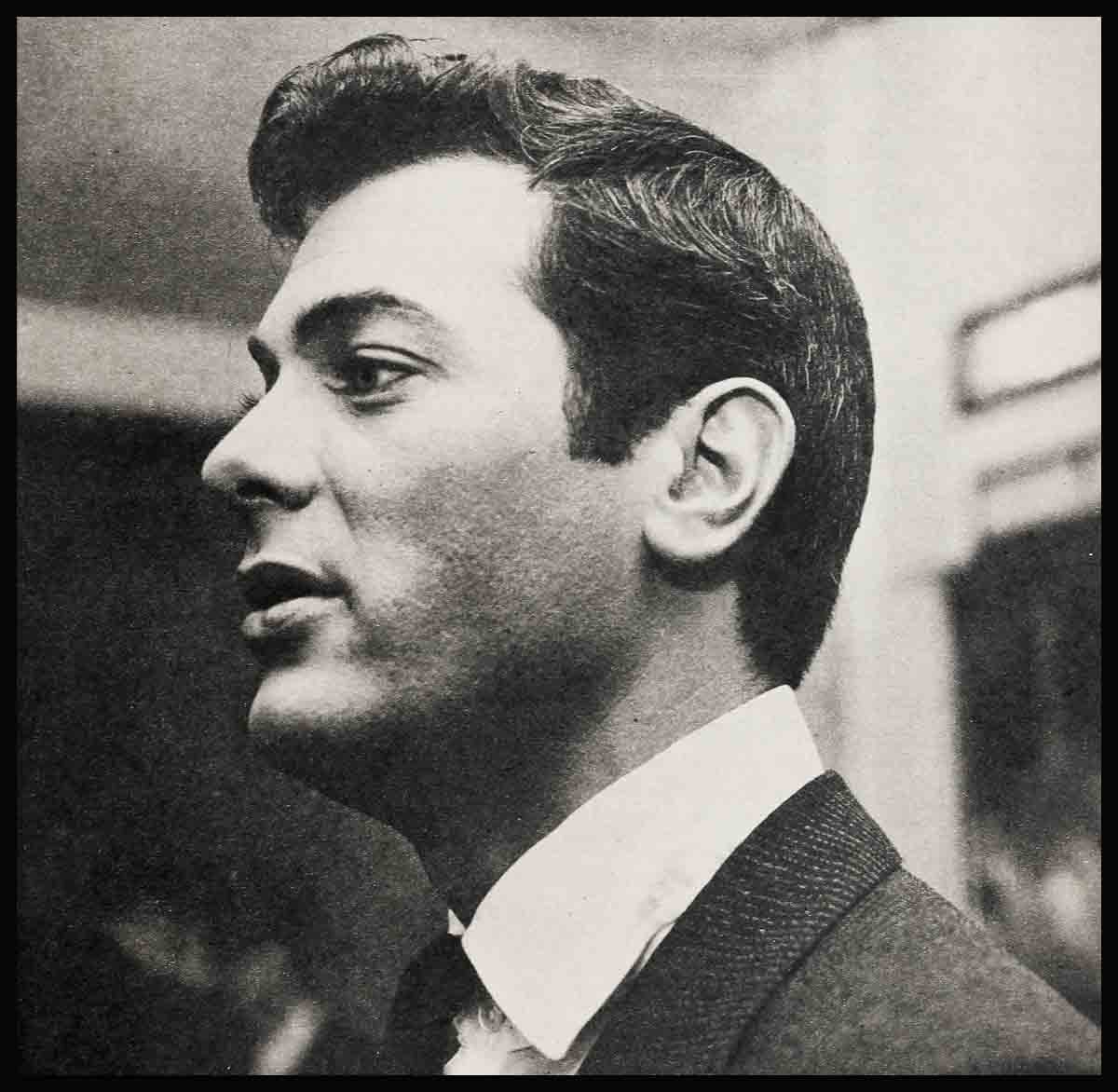

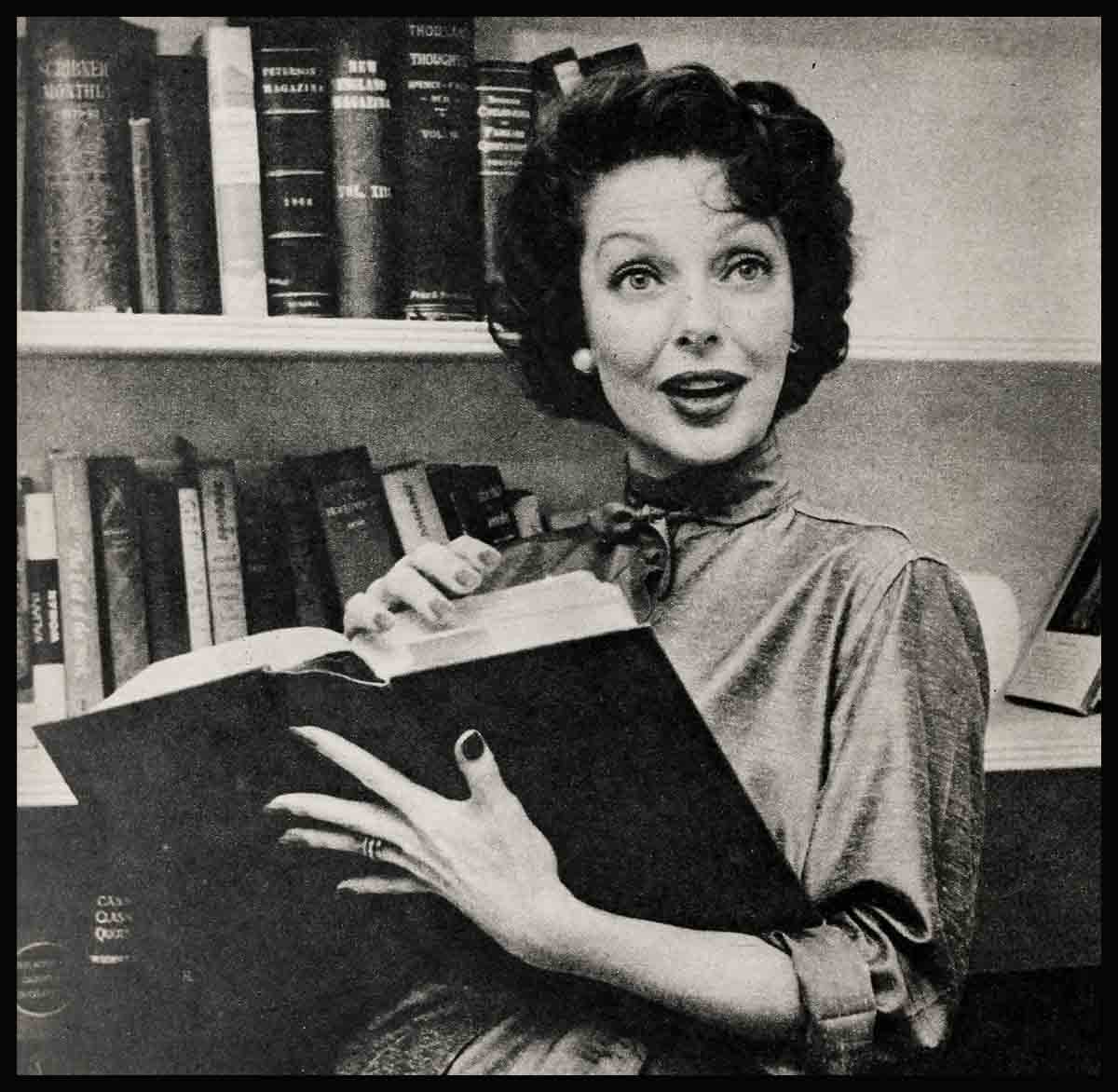
vorbelutr ioperbir
9 Temmuz 2023Attractive section of content. I just stumbled upon your website and in accession capital to assert that I get actually enjoyed account your blog posts. Any way I will be subscribing to your feeds and even I achievement you access consistently fast.